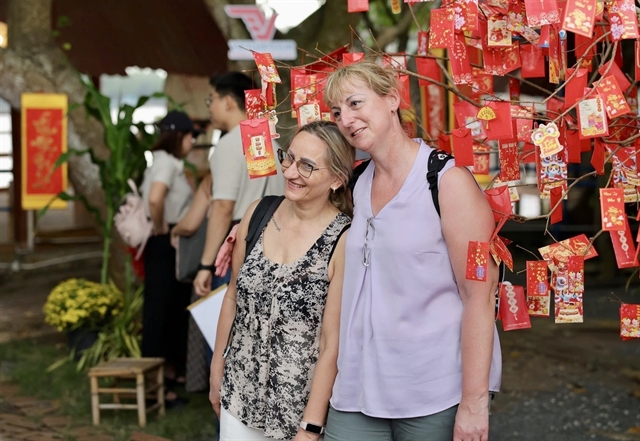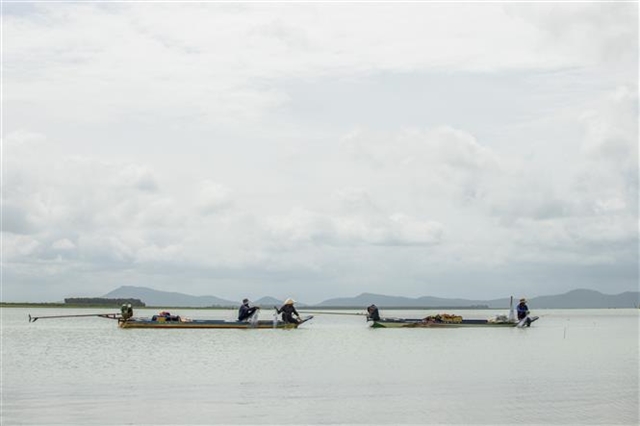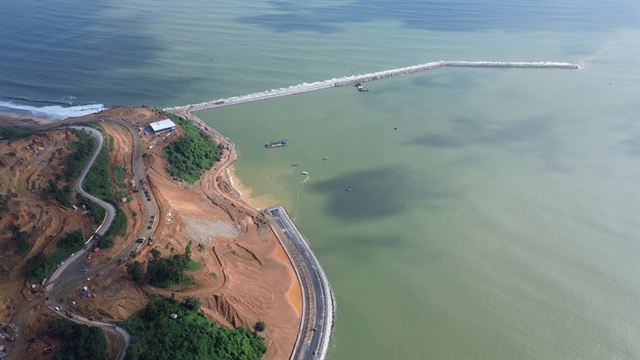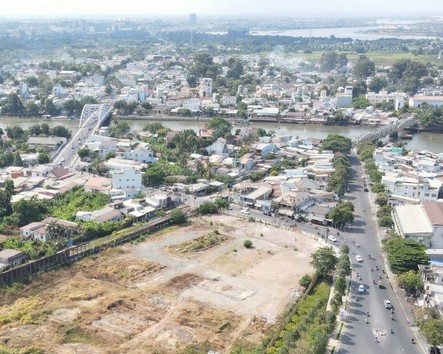 Society
Society

 |
| Dầu Tiếng Reservoir, covering more than 27 sq. km with a capacity of 1.58 billion cubic meters of water, is the largest reservoir in Việt Nam. It spans across three provinces: Tây Ninh, Bình Dương, and Bình Phước, and plays a significant role in agriculture in the Southeast region. – VNA/VNS Photo Giang Phương |
TÂY NINH – Tây Ninh Province is transforming its agriculture with cutting-edge, sustainable farming methods powered by a reliable and well-developed irrigation system.
Once dependent on unpredictable weather, the province now leverages abundant water resources from reservoirs and rivers to implement smart rice cultivation techniques that save water, reduce emissions, and boost farmers’ profits.
Dầu Tiếng Reservoir, the Vàm Cỏ Đông River, and a comprehensive canal system provide abundant water that enables the province to manage irrigation effectively. This progress has paved the way for environmentally friendly, low-emission, and efficient agricultural production.
The province is now regarded as the rice bowl of the Southeast region, benefiting greatly from its irrigation advantages.
It has shifted to smart farming practices that conserve water and reduce emissions.
A standout example is the "alternate wetting and drying" rice cultivation method, combined with the “one must – five reductions” technique, promoted by the Province Agricultural Extension Centre.
This method alternates between flooding and drying rice fields, which improves rice plant growth while reducing the use of water, fertilisers and pesticides.
The “one must - five reductions” technique requires using certified rice seeds and reducing the use of seeds, fertilisers, pesticides, water, and post-harvest losses.
This model saves water, cuts methane emissions, and maintains high crop yields.
The An Bình Agricultural Services Co-operative in Châu Thành District is one of the province’s first co-operatives which have adopted this model and its members have seen significant benefits.
Nguyễn Văn Lành, a co-operative member, said after implementing the model, the production cost of rice cultivation had fallen from VNĐ15 million (US$580) per hectare to about VNĐ10 million ($380) now, while profits had increased by VNĐ5 million ($190) per hectare.
“We are using 40 per cent less water while achieving more than 15 per cent higher yields,” he said.
Nguyễn Văn Luôn, director of the co-operative, said most local canals had been upgraded, ensuring a steady water supply.
The government subsidises 100 per cent of irrigation costs, and this gives farmers favourable conditions to fully implement and benefit from new cultivation methods, according to Luôn.
The province is now expanding the smart rice farming model to other co-operatives, aiming for widespread adoption across all rice-growing areas.
Hà Thanh Tùng, director of the province Agricultural Extension Centre, said: "With a secure water supply from fully developed irrigation projects, we can control water usage efficiently, reduce emissions, and still ensure strong productivity."
Building a green agriculture
Tây Ninh had about 145,000ha devoted to cultivating three rice crops last year, producing over 820,000 tonnes, an increase of 1.5 per cent against 2023.
This increase came not from expanding farmland but from using high-quality rice varieties and adopting advanced, low-emission, water-saving farming techniques.
The province is determined to transform all rice growing areas into sustainable, environmentally friendly rice growing areas, according to its Department of Agriculture and Environment.
Nguyễn Đình Xuân, director of the department, said the province had implemented various measures, such as modernising its irrigation infrastructure, attracting private investment, promoting technology transfer, and organising production in combination with developing value chains.
"Irrigation is the foundation for developing our province’s high-tech agriculture," he said.
At the foot of Bà Đen Mountain, which was once famed for its custard apple orchards, many farmers have established green houses to grow crops such as baby Japanese cucumbers, organic grapes, and honeydew melons.
Nguyễn Tuấn Anh, a young farmer passionate about clean agriculture, grows baby Japanese cucumbers in greenhouses in Tây Ninh City’s Ninh Sơn Ward.
Baby Japanese cucumbers require high humidity and clean water.
With the TN11 canal running along his farm and the use of drip irrigation technology and modern greenhouses, he is able to maintain ideal moisture levels, reduce pests, and avoid using chemical pesticides.
Nguyễn Trung Đông in Dương Minh Châu District’s Phan Commune has turned his previously barren land along the slopes of Bà Đen Mountain into an organic grape orchard which meets European standards.
He is confident in growing imported grape varieties because the local irrigation system has been upgraded.
Tây Ninh is actively building a green, modern agricultural ecosystem.
The province has more than 115,000ha, or 31 per cent of farming land, that now uses water-efficient irrigation, helping reduce costs and preserve water resources.
It is actively applying biotechnology, replacing chemical use with natural pest control, and promoting organic farming.
Its preferential credit policies, support for obtaining certification of good agricultural practices standards, trade promotion efforts, and the development of products recognised under the country’s “One Commune – One Product” programme, have all provided strong incentives for both farmers and businesses to invest in agriculture.
By 2030, Tây Ninh aims to develop concentrated farming areas, combined with processing and export, and establish sustainable agricultural value chains.
To achieve this, the province is focusing on public–private partnerships, training economic management skills for farmers, providing soft loans for farmers and businesses, and investing in irrigation systems.
Xuân, director of the Department of Agriculture and Environment, said investment in irrigation and high-tech agriculture would be a long-term strategy to improve productivity, quality, and competitiveness.
The province aimed to become a regional hub for processing and exporting high-tech agricultural products, he said. – VNS



